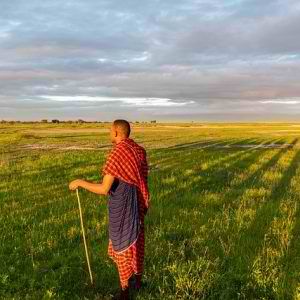The past weeks have made it clear that human beings were not made to 'sit at home'. We yearn to be free again, for the curfew and all limitations to be lifted. It is time to meet up with friends and relatives and it is time to be unlimited in our travelling and wandering around again. Not only have we missed social contact, but we are also longing for the freedom to take a walk in a park, go hiking or to breathe in the fresh air in the mountains or on the beach. Our food, our water, the oxygen we breathe in, even the houses we live in or the benches we sit on in our favourite parks, they all come from one source: nature.
Mother Nature gives us so much and continuously cares for us. Marine plants create half of our atmosphere’s oxygen and trees absorb the carbon dioxide we all create, turning it into fresh oxygen. How can we give so little in return for a world that offers us so much?
For years we didn’t bat an eye as we polluted the air, water and soil and destroyed pieces of nature merely for personal gains. At this rate, we need 1.6 Earths to meet our annual demands. Over the past months, we have all seen the impact this has on our planet and how it is suffering. From bush fires swallowing entire forests in Australia, Brazil and the USA, forcing animals to flee their natural habitats, to locusts swarming our own and neighbours’ backyards, the evidence continues to present itself.
It is time to realize how fortunate we are to live on this beautiful planet, rich in breath-taking views, magical landscapes and diverse wildlife.
Every year, the 5th of June marks the World Environment Day, a day dedicated to raise awareness about our environment and to initiate action to protect it. Whereas this is a great initiative and a first step, the environment deserves our attention every single day. Let’s take a moment to reflect on the natural wonders we are surrounded by and think about how we can contribute to guarding them against harm, not once but 365 days a year.
In Kenya, there are multiple parks that gain international recognition and attract tourists and visitors from all over the world. We are home to the Masai Mara national park, immersed in culture and part of the Great Migration with its powerful scenes of hundreds of thousands of wildebeests, zebra’s and gazelles looking for green pasture. Nairobi National Park hosts a large and diverse wildlife population in our capital, including the Big Five. Together with other organizations, they support and care for wildlife and wildlife conservancy like the David Sheldrick Wildlife Trust, rescuing and rehabilitating orphaned elephants and rhinos.
Even if we leave all of our animals out of the picture, we still have a lot to offer. Mount Kenya rises high and tall, watching over Meru, Tharaka-Niti, Embu, Kirinyaga and Nyeri. Several counties border Lake Victoria and Lake Turkana is the world’s largest permanent desert lake ànd the world’s largest alkaline lake. On top of the numerous other parks and conservancies, the Indian Ocean blesses our coastline with paradise beaches in Mombasa, Watamu, Malindi and more. Kenya is a gem that deserves the finest treatment. Our Fauna and Flora need to be supported and protected and everybody can contribute, even if this just means treating our surroundings with the respect it deserves.
Don't throw that plastic bottle out of your car window. Keep the hills clean when you go hiking. Let animals live in peace. Research on ecotourism before you leave for your holiday and opt for a green and sustainable stay. Support organizations that commit to save and help animals, day in, day out. Together we can make a world of difference to give our world the chance to recover.





